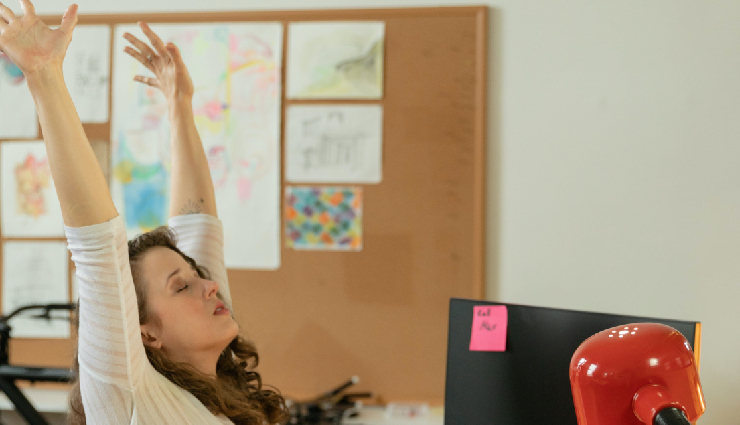- Home›
- Healthy Living›
- 10 Tips To Help You Avoid Sleep While Studying
10 Tips To Help You Avoid Sleep While Studying
By: Priyanka Maheshwari Thu, 08 Feb 2024 2:12:50

Frequently, engaging in study sessions can leave an individual feeling fatigued and drained, particularly during late-night sessions. The era where studying equated to dullness is now a thing of the past. Fortunately, there exist methods to enhance concentration while studying.
Addressing fatigue and refining study techniques necessitates only a few adjustments to one's daily routine. This can pose challenges, especially during exam periods, when the body grapples with the effects of both physical and emotional stress, often without adequate rest. Prioritizing studying over relaxation is common, yet the looming concern of drowsiness persists each time one settles in to study.
However, depriving oneself of sleep is ill-advised. A well-rested student can function more efficiently during the day, aiding in the retention of information in long-term memory.
Every student aspires to excel in their exams, yet many find themselves dozing off during classes, jeopardizing their academic progress and squandering valuable study time.

# Sit upright on a chair
Feeling drowsy while lounging on pillows or a couch is common. When studying, it's best to avoid getting too comfortable. Instead of reclining, which signals relaxation to the brain, sitting upright signals alertness. Maintaining a conducive study environment is crucial. During extended study sessions, especially at night, it's advisable to maintain good posture.

# Maintain a balanced diet
Consuming heavy, fatty foods can induce tiredness and sleepiness. Opt for a nutritious, well-rounded meal rich in fiber and nutrients, such as soups, salads, legumes, and a variety of fruits and vegetables, to prevent drowsiness while studying. Choose fruits with natural sugars like apples, oranges, and bananas over sugary snacks like cakes and chocolates to satisfy cravings.
Consider snacking on granola or energy bars containing nuts and seeds, or lean proteins, for an energy boost.

# Avoid studying in the bedroom
Studying in areas associated with sleep, and using extra comforts like leg cushions and pillows, can induce drowsiness. Create a designated study area with a desk and chair in a well-lit room. Avoid relying solely on a table lamp for illumination, as dim lighting can promote relaxation. Opt for bright light sources to stay alert during study sessions.

# Stay hydrated
Proper hydration is essential for maintaining energy levels and cognitive function. Dehydration can lead to exhaustion, headaches, reduced mental clarity, tension, and sleep disturbances. To ensure optimal hydration during study sessions, keep a water bottle nearby and drink water regularly. Drinking water not only keeps you hydrated but also helps maintain alertness.

# Get adequate sleep and take power naps
Lack of sufficient sleep is a major contributor to drowsiness while studying. Aim for 7 to 8 hours of sleep each night to support overall health. Establish a regular sleep schedule to regulate your body's internal clock. If sleep is insufficient at night, consider taking short power naps during the day to refresh your energy and focus.

# Study in a well-lit environment
Studying in a brightly lit room can help maintain alertness and prevent drowsiness. Avoid relying solely on a table lamp for illumination, as it may create a cozy atmosphere conducive to sleep. Instead, ensure the entire room is well-lit to promote a wakeful state.
-1707380377-lb.jpg)
# Engage in active learning methods
Passively reading notes or textbooks can contribute to drowsiness. Increase focus and engagement by actively learning the material. Create summary notes, discuss topics with peers, ask questions, analyze case studies, teach others, and relate the material to real-world applications.

# Move your body
Combat drowsiness by incorporating movement breaks into study sessions. Take short breaks to stretch, dance, or go for a brief walk outside. Moving your body increases oxygen flow to the muscles and brain, improving circulation and boosting energy levels.

# Wash your face and refresh
Washing your face with cold water can help revive your senses and combat sleepiness. Take regular breaks from studying, especially when using a computer screen, to prevent eye strain. Consider taking a shower or brushing your teeth to refresh your mind and body.

# Switch tasks regularly
Break up study sessions and prevent monotony by switching tasks periodically. Keep study sessions brief and take regular breaks every few hours. Engage in activities that promote alertness and movement, such as watching TV, listening to music, or engaging in creative pursuits like painting.





